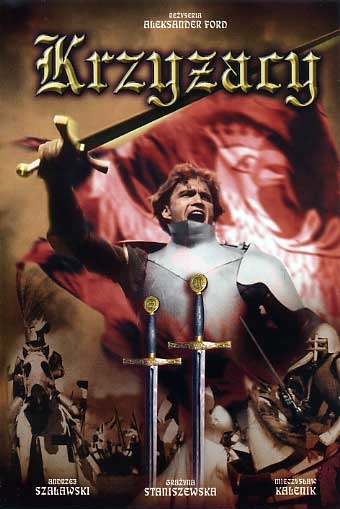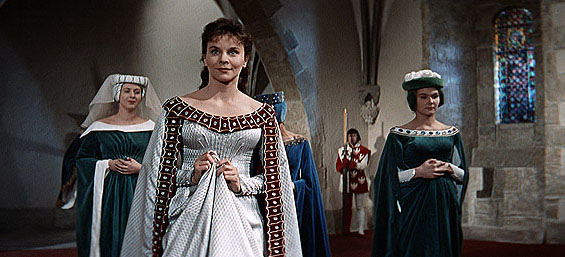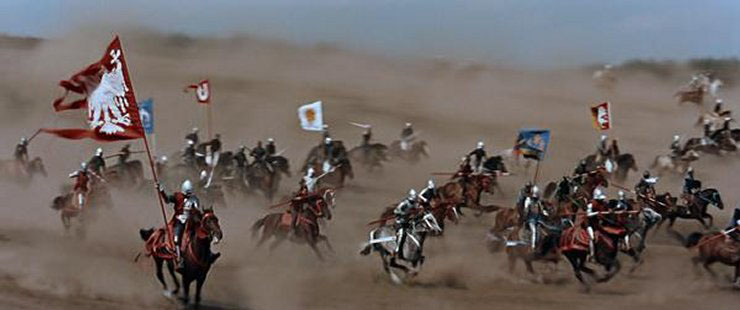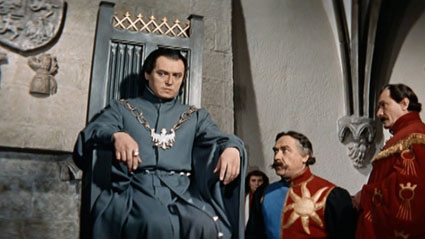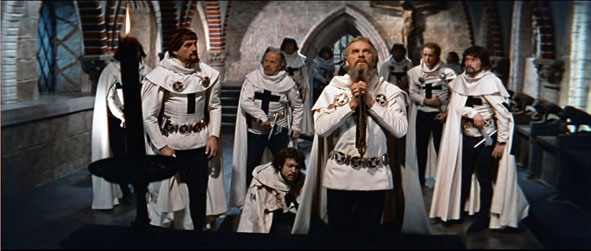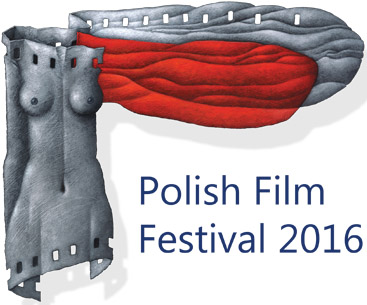 |
Puma
Media |
Melbourne:
Sydney:
|
|
Polish
Classics w
Knights of the Teutonic order - Krzyżacy
|
|
Script:
Screenwriter: Cast: |
"Knights of the Teutonic order" is an extraordinary project which - after remastering and digital reconstruction - aims to bringing one of the most exquisite masterpieces of Polish cinematography to a contemporary audience. In the early 15th century,
the Teutonic Knights of Germany invade Poland under the guise of converting
the pagan population to Christianity. As vindication for Jurand's
successful defense against the invaders, the Teutons kill his wife.
Shortly thereafter, Jurand's only daughter, Danusia, visits the court
of Mazovia, where Zbyszko, a young member of the duchess's entourage,
swears to avenge the death of Danusia's mother. When Zbyszko assaults
a Teutonic emissary, the Polish king is forced to sentence him to
death; in accordance with custom, however, Danusia covers Zbyszko's
head with her veil at the last minute, and he is saved. Zbyszko and
Danusia become engaged, but she is kidnaped by the Teutonic Knights,
and Jurand is seized at the Szczytno castle, where he is tortured.
After the Grand Master of the Teutonic Knights dies, his successor
declares war on Poland and her other allies, including Russia and
Lithuania. Meanwhile, Zbyszko conducts an extensive search for Danusia,
but when at last he finds her, she has lost her sanity and dies a
short time later. At the Battle of Grünwald in 1410, the Teutonic
Knights' eastward expansion is finally thwarted in
More
about this film
|
Krzyżacy polski film historyczny z 1960 roku oparty na powieści Henryka Sienkiewicza pod tym samym tytułem. Oficjalna premiera filmu odbyła się 2 września 1960, mimo że jego pierwszy publiczny pokaz miał miejsce 15 lipca 1960 (w 550. rocznicę bitwy pod Grunwaldem) w łódzkiej Hali Sportowej. Film Krzyżacy jest najbardziej dochodowym filmem w historii polskiej kinematografii, absolutnym hitem i filmem o największej oglądalności. Obejrzało go 2 miliony widzów w ciągu kilku miesięcy, 14 milionów w ciągu pierwszych czterech lat, a ponad 32 mln do 1987 r. W ZSRR miał 29,6 milionów widzów, w Czechosłowacji 2,65 mln, a we Francji 1 mln. Film został uznany przez amerykańskiego reżysera Martina Scorsese za jedno z arcydzieł polskiej kinematografii i w 2014 roku został wytypowany przez niego do prezentacji w Stanach Zjednoczonych oraz Kanadzie w ramach Festiwalu Polskich Filmów Martin Scorsese Presents: Masterpieces of Polish Cinema. Więcej
o filmie Więcej
o filmie
|
